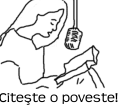
"One of the oldest memories of my early contacts with music was discovering three compilations of vinyl records kept at home: each case contained several records organized by year, or style: classical (my first and dearest one), Portuguese and Anglo-Saxon music. Listening to the first I gave wings to my love for dancing; to the sound of the second, I often sang; the third made me dance again. To me, music always meant motion, and vice-versa. I also recall a special toy, a miniature piano that could be played, over which my brother and I used to fight, thus ending up in pieces, in a moment of anger, under our father’s foot. The sadness that the incident brought about in me made me burst into tears, until I was given some other instrument to replace the smashed little piano. It was the birth of my first musical instrument: a xylophone with a different color for each key, one octave without half-tones. As a result, I realized not only that I could reproduce the melodies of my favorite songs, but also that it was exactly what musical instruments were for. After achieving a reasonable performance of the traditional Portuguese tune «Malhão», I was very disappointed with my version of «Happy Birthday To You”, for it sounded wrong. In the absence of a D sharp, I started searching for other melodies and improving the previous ones, until one day my mother asked me to repeat what I had just played, and, knowing that nobody had taught me that, she decided to take me to a music school. Furthermore, when I was four years old, she used to make me listen to the Portuguese national anthem, which I memorized, although every time I sang it, some parts of the lyrics had a strange effect on me, for I couldn’t understand their meaning. My godfather and godmother, who lived next door, were the perfect audience for those early performances."






No comments:
Post a Comment